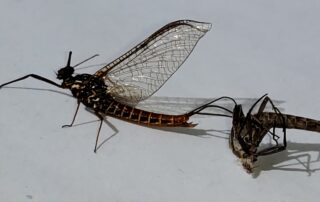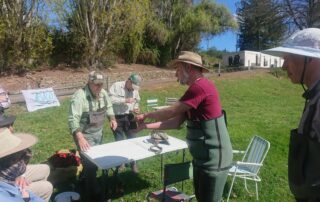Life Cycle of the Tasmanian Mayfly
In Tasmania, developing a sense around what trout foods are available, where and when, increases the chances for success. Mayfly are in full swing from September/October on the lakes and rivers of the lowlands. The highlands follows a little later due to its altitude and climate. These mayfly hatches continue through to around March, peaking again on the lowlands through to the end of April and the season's close. Altitude plays a major role along with water and air temperature; changing light conditions, i.e. cloud cover; and wind and climate. Nymph The Nymph Nymphs live in the water [...]
Waterbug Blitz
Larva is the stage of development of an insect between egg and pupa. Instar is a stage of life of an insect between two periods of moulting. Nymph is an immature form of an insect. The shedding phases. Pupa is an insect in the stage of development between larva and imago (aka: Emerger - a word commonly used in fly fishing terms when talking about mayfly emergence). It's more involved than that, of course, but there's a quick little summary. Why are we talking about this? Because we participated in a project and were excited to find some up close. [...]


